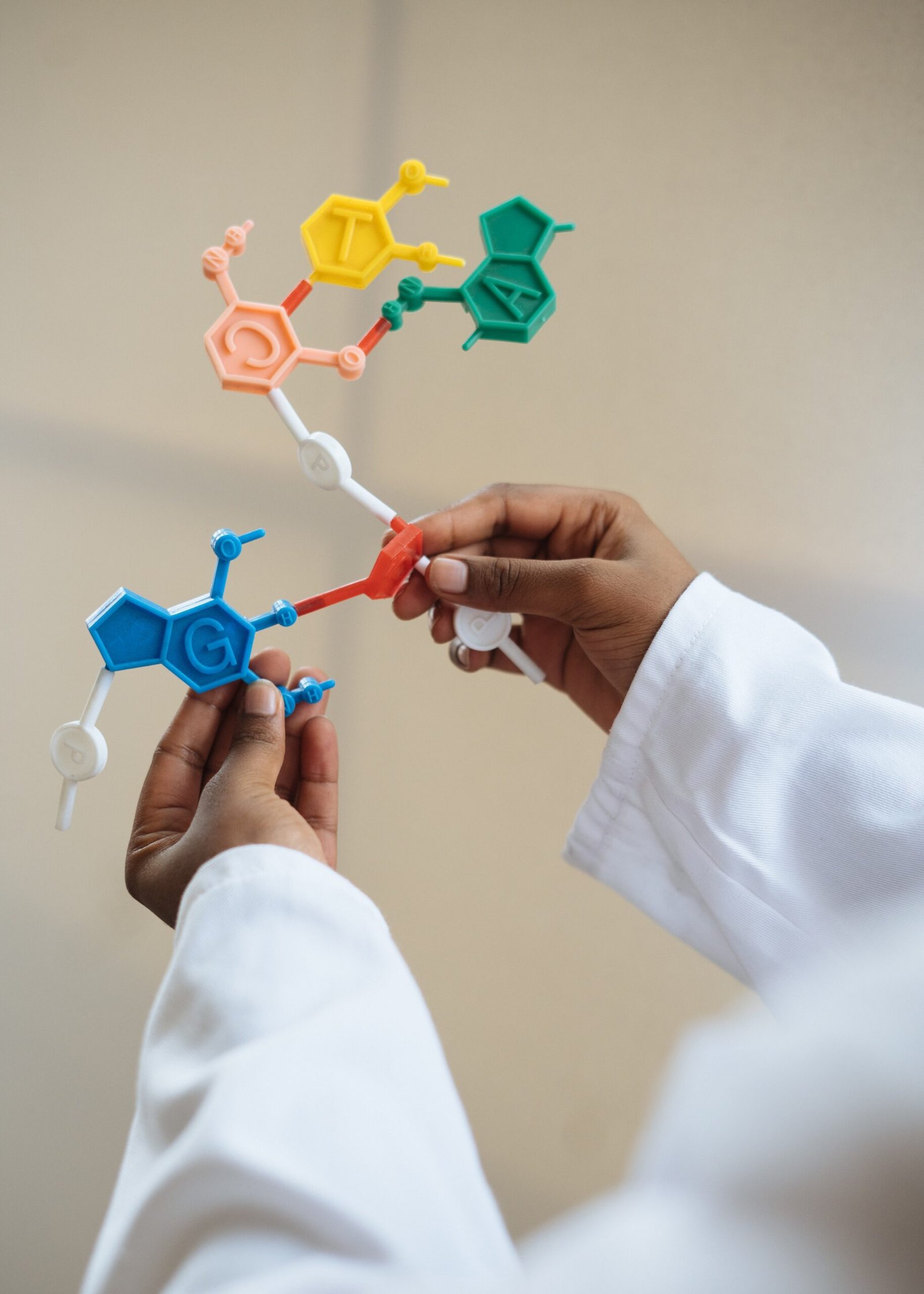
Synthetic Biology: Unlocking the Potential of Engineered Life
Synthetic biology is an interdisciplinary field that combines biology, engineering, and
computer science to create artificial biological systems by manipulating DNA and genetic material.
It aims to design and engineer living organisms with customized functionalities, revolutionizing fields such as medicine, energy, and agriculture.
Interesting things about Synthetic Biology:
1. Genetic Engineering on a Whole New Level: Synthetic biology combines biology,
engineering, and computer science to create artificial biological systems with unique
functionalities, paving the way for groundbreaking discoveries and innovations.
2. Customizable Living Organisms: Synthetic biology allows scientists to design and
engineer living organisms with specific traits or functions, such as producing biofuels,
generating medicines, or even sensing environmental pollutants.
c. Ethical and Philosophical Considerations: The field of synthetic biology raises
intriguing questions about the boundaries of life, the implications of manipulating
genetic material, and the ethical responsibilities associated with engineering living organisms.

History of Synthetic Biology:
The origins of synthetic biology can be traced back to the early 2000s when scientists
started envisioning the creation of artificial organisms with engineered DNA.
Important milestones include the development of standardized genetic parts, such as
BioBricks, and the creation of the first synthetic cell by Craig Venter’s team.
The BioBrick parts are used by applying engineering principles of abstraction and modularization. BioBrick parts form the base of the hierarchical system, which is the basis for synthetic biology.
There are three levels to the hierarchy:
- Parts: Pieces of DNA that form a functional unit.
- Device: Collection set of parts with defined function.
- System: Combination of a set of devices that performs high-level tasks.
Today, numerous research institutions, universities, and companies actively contribute to
advancing the field.
How it works:
Synthetic biology involves the design and construction of genetic circuits and biological
systems using standardized genetic components and tools.
Scientists engineer the DNA of living organisms, introducing new genetic information or
modifying existing genetic code to achieve desired functionalities or traits.
Advanced techniques like gene synthesis, genome editing, and computer modeling play
crucial roles in the design and implementation of synthetic biology projects.

Its features:
- DNA Manipulation: Synthetic biology relies on the ability to manipulate DNA
sequences to engineer new biological systems.
2. Genetic Circuits: Scientists use genetic circuits to control the behavior of engineered
organisms, allowing them to respond to specific signals or produce desired products.
3. Modular Design: Synthetic biology embraces a modular approach, using standardized
genetic parts that can be assembled and combined to create complex biological systems.
Its Advantages:
1. Customization: Synthetic biology offers the potential to design organisms with precise
functionalities, tailored to specific applications in medicine, agriculture, environmental
remediation, and more.
2. Sustainable Solutions: By harnessing the power of biology, synthetic biology enables
the development of sustainable alternatives to traditional processes, such as bio-based
production of fuels, chemicals, and materials.
3. Medical Breakthroughs: Synthetic biology holds promise for creating novel therapies,
including engineered cells for targeted drug delivery, biosensors for disease detection,
and the production of rare molecules for personalized medicine.
Other Technologies related to Synthetic Biology:
1. Genetic Engineering: Genetic engineering techniques, such as CRISPR-Cas9, play a
crucial role in synthetic biology by enabling precise modifications to an organism’s
genetic material.
2. Nanotechnology: Nanotechnology intersects with synthetic biology, allowing for the
creation of nano-sized biological constructs and devices.

Examples of Synthetic Biology:
1. Biofuels: Synthetic biology can be utilized to engineer microorganisms capable of
producing biofuels, offering a renewable and sustainable alternative to fossil fuels. b.
2. Bioremediation: Engineered organisms can be designed to clean up pollutants in the
environment, such as oil spills or toxic chemicals, by breaking them down into harmless
byproducts.
3. Pharmaceutical Production: Synthetic biology enables the production of valuable
compounds and drugs using engineered microorganisms, potentially revolutionizing the
pharmaceutical industry.

Companies Using Synthetic Biology:
1. Ginkgo Bioworks: Ginkgo Bioworks focuses on using synthetic biology to develop
custom microbes for various industrial applications, including agriculture, chemicals, and
healthcare.
Another company Zymergen utilizes synthetic biology to engineer microbes for materials
production, enabling the development of sustainable and high-performance materials.
Zymergen was acquired by GinKgo Bioworks in 2022.
2. Twist Bioscience: Twist Bioscience specializes in synthetic DNA synthesis, providing
customized DNA constructs and libraries to support synthetic biology research and
applications.
Industries using Synthetic Biology:
1. Healthcare and Pharmaceuticals: Synthetic biology has the potential to
revolutionize drug discovery, personalized medicine, and the production of therapeutic proteins and vaccines.
2. Agriculture and Food: Engineered crops and microorganisms can enhance
agricultural productivity, improve crop traits, and contribute to sustainable farming practices.
3. Chemical Manufacturing: Synthetic biology offers greener and more efficient
alternatives to traditional chemical synthesis, enabling the production of environmentally friendly chemicals and materials.
Synthetic biology has implications across various industries, including energy, environmental conservation, biofuels, biodegradable materials, waste management, and more.

What Synthetic Biology doesn’t contain:
Synthetic biology does not involve the creation of artificial intelligence or the development of purely synthetic organisms without any biological components.
When you should NOT use Synthetic Biology:
Synthetic biology may not be suitable for all applications, particularly when traditional
methods or natural biological processes are more efficient, cost-effective, or have fewer ethical implications.
Additionally, strict regulatory considerations must be taken into account to ensure the
responsible and safe use of synthetic biology technologies.
How Synthetic Biology processing will evolve in the future:
The field of synthetic biology is expected to evolve rapidly, with advancements in DNA
synthesis, gene editing, and computational design tools.
Future applications may include personalized medicine, sustainable bio-manufacturing,
advanced biosensors, and environmental remediation.

Conclusion:
Synthetic biology represents a paradigm shift in our ability to engineer and manipulate
living organisms, offering a multitude of possibilities in fields ranging from healthcare to energy.
As the field continues to progress, it holds the potential to address global challenges,
reshape industries and unlock new frontiers of scientific discovery.
Embracing synthetic biology can pave the way for a more sustainable and technologically
advanced future.


Dear Raktim Ji,
Quite exhaustive information you have provided in this article.
It needs lot of efforts, time & knowledge to extract such details.
Congratulations 👏